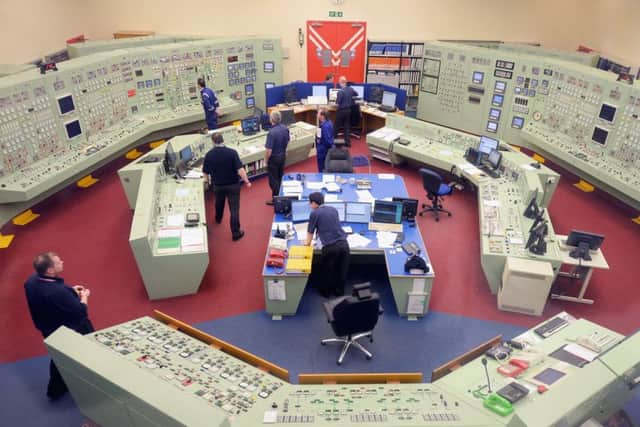Decision to restart Scots nuclear reactor has put people ‘at risk’
The Office for Nuclear Regulation (ONR) has granted permission to EDF, the operators of Hunterston B nuclear power station, to operate reactor four for four months. The reactor was shut down in March last year after investigators discovered more cracks than expected in its graphite core. The regulator said it was now satisfied that it was safe to operate the reactor and that it could be safely shut down “in all foreseeable circumstances”.
However, that decision has been called into question by the 11-strong group.
Advertisement
Hide AdAdvertisement
Hide AdIn an open letter to the Scottish Government, which has been supportive of extending the operating lifespan of Hunterston B, they urged ministers to object to the ONR’s decision “in the strongest terms”, pointing out how two reactors at the station had hundreds of graphite cracks, some as wide as half an inch, with many multiply-fissured graphite bricks.


The group, whose members include Dr David Toke, reader in energy policy at Aberdeen University, Dr Richard Dixon, the director of Friends of the Earth Scotland, and the Scottish Greens MSP Ross Greer, stressed the original sell-by date of the reactors had passed 13 years ago.
They write in their letter: “It is difficult to believe that permission has been granted to see if yet more cracks, or larger cracks, or more multiply-damaged bricks will appear in this period. A winter without these reactors has demonstrated that Scotland does not need their electricity. This decision unnecessarily puts the population of central Scotland at risk. We ask the question – why?”
The letter, which is also signed by David Smythe, a prominent geophysicist and fracking critic, and Arthur West, the chair of Scottish CND, adds: “Is the Scottish Government in such thrall to the Westminster government and to the French parent company EDF that it will stand by without demur and allow these ancient, potentially dangerous reactors to restart?”
Energy minister Paul Wheelhouse said the safe operation of nuclear power plants in Scotland was the Scottish Government’s “utmost priority” and that it welcomed the reassurance provided by ONR, a reserved body, regarding reactor four’s return to service.
He added: “Prolonging the life of Hunterston B will help to ensure Scotland retains a secure energy supply, while we increase the proportion of energy generated by renewables and cleaner thermal generation technologies.
“We will continue to liaise closely with the ONR and will highlight the concerns raised regarding the increased upper thresholds for cracks.”
EDF has also applied to the ONR to restart reactor three at the station. The case is still pending.